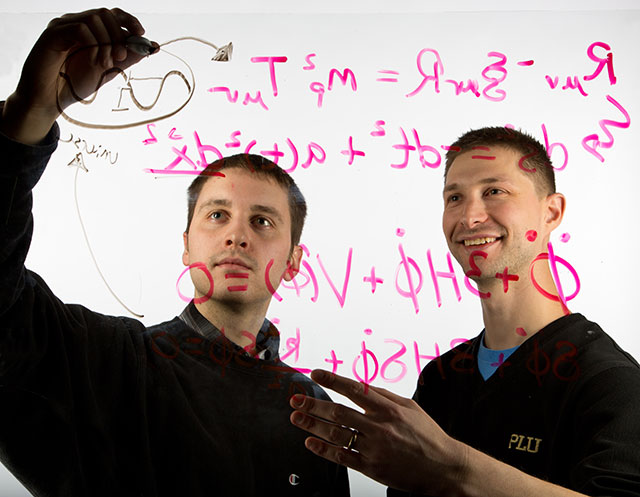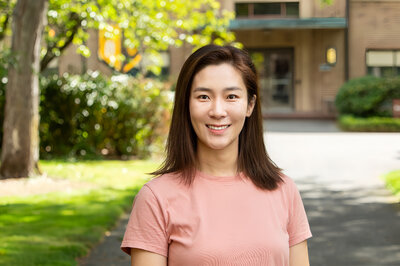Page 5 • (624 results in 0.03 seconds)
-
The Puget Sound Naval Shipyard’s Laboratory Division is seeking to hire up to 3 entry-level chemists. Responsibilities The successful selectee will perform the following duties: Performing chemical and physical analysis of materials under close supervision. Using laboratory techniques and a variety of laboratory instruments under…
Puget Sound Naval Shipyard’s Lab Division Hiring 3 Chemists Posted by: nicolacs / January 29, 2018 January 29, 2018 The Puget Sound Naval Shipyard’s Laboratory Division is seeking to hire up to 3 entry-level chemists. Responsibilities The successful selectee will perform the following duties: Performing chemical and physical analysis of materials under close supervision. Using laboratory techniques and a variety of laboratory instruments under close supervision. Performing calibration of
-
Applications for summer 2024 will open on 1 September 2023 for the Directors Summer Program, Cryptanalysis and Signals Analysis Summer Program, and Graduate Mathematics Program. These 12 week paid internships provide students with the opportunity to work directly with NSA Mathematicians on mission-critical problems and…
Mathematics 2024 Summer Internships at the National Security Agency Posted by: nicolacs / August 23, 2023 August 23, 2023 Applications for summer 2024 will open on 1 September 2023 for the Directors Summer Program, Cryptanalysis and Signals Analysis Summer Program, and Graduate Mathematics Program. These 12 week paid internships provide students with the opportunity to work directly with NSA Mathematicians on mission-critical problems and experience the excitement of the NSA mathematics
-
Join the Computer Science Department to hear the senior capstone presentations. Student presentations will take place Friday and Saturday.
library intended for both physics students and researchers wishing to perform OpenCL-accelerated numerical analysis, and is currently used primarily for the simulation of light. PhysiCL includes a Numpy-based code units system, a set of generic simulation tools, built-in tools for absorption-based and isotropic-based scattering, tools for measuring light behavior, and tools for writing new OpenCL-based simulation features. Github: https://github.com/bcwarner/physicl 10:30am – Implementation and
-

Professor Emeritus of Mathematics | Department of Mathematics | dollinmb@plu.edu | Current position Pacific Lutheran University 1981 – 1998. Emeritus Professor, Department of Mathematics, 1998 – present. Chair, Department of Mathematics, 1992 – 1994. Publications Commentary on ‘Misunderstandings about Q and ‘Cochran’s Q test’ in meta-analysis’, Statistics in Medicine, 2015, 35(4):501-502 · February 20, 2016, DOI: 10.1002/sim.6758 (with E.
Mathematics, 1998 – present. Chair, Department of Mathematics, 1992 – 1994. Publications Commentary on ‘Misunderstandings about Q and ‘Cochran’s Q test’ in meta-analysis’, Statistics in Medicine, 2015, 35(4):501-502 · February 20, 2016, DOI: 10.1002/sim.6758 (with E. Kulinskaya). An improved test for homogeneity of odds ratios based on Cochran’s Q-statistic. BMC Medical Research Methodology 2015, 15:49; DOI 10.1186/s12874-015-0034-x (with E. Kulinskaya). On the moments of Cochran’s Q statistic under the
Contact InformationArea of Emphasis/Expertise -

Chair, Department of Economics | Department of Economics | nagyka@plu.edu | 253-535-7085 | Krisztina Nagy (n-odge as in Dodge like the car) is an experienced teacher and researcher focusing on international economics and econometric analysis. She is passionate about teaching her craft to both undergraduate and graduate students and she especially enjoys guiding students to see the interconnectedness of today’s world. Dr.
: Macroeconomics, Financial Econometrics Teaching Areas: Macroeconomics, International Economics, Managerial Economics, Statistics, and Econometrics Biography Krisztina Nagy (n-odge as in Dodge like the car) is an experienced teacher and researcher focusing on international economics and econometric analysis. She is passionate about teaching her craft to both undergraduate and graduate students and she especially enjoys guiding students to see the interconnectedness of today’s world. Dr. Nagy has taught at
-
Innovation Studies minors must complete a minimum of 20 credit hours in the following key areas: Introduction to Innovation Studies (4 credits) Innovation Principles (8 credits) Elective (4 credits)
computer programming and problem-solving using real datasets from a variety of domains such as science, business, and the humanities. Introduces the foundations of computational thinking, modeling and simulation, and data visualization. CSCI 144: Introduction to Computer Science– An introduction to computer science including problem solving, algorithm design, object-oriented programming, numerical and non-numerical applications, and use of data files. Ethical and social impacts of computing. ENG 323
-
16 semester hours, including: CSCI 120 or 144; or DATA 133 STAT 231, 232, or 233; or MATH/STAT 242 And at least: 8 additional semester hours of statistics selected from BUSA 467, ECON 344, PSYC 242,
253.535.7699 (Economics and Sociology & Criminal Justice) 253.535.7400 (Mathematics and Psychology) Statistics (STAT), a branch of applied mathematics, studies the methodology for the collection and analysis of data and the use of data to make inferences under conditions of uncertainty. Statistics plays a fundamental role in the social and natural sciences, as well as in business, industry, and government.The Statistics program is offered cooperatively by the Departments of Economics
-

Auberry Fortuner ’13 and Assistant Professor Bret Underwood did research into understanding what gave rise to the expansion of the universe. (Photo by John Froschauer) Modeling the Early Universe By Katie Scaff ’13 None of us was around for the Big Bang , but one…
variables in the equations Fortuner has been exploring. His findings show the amount of expansion and energy in the universe over time, and give insight into what parameters affect the physics of the very early universe. Entering numerical codes into a computer program and running simulations for hours day after day wasn’t glamorous, but it’s been an invaluable experience for Fortuner – a physics major who almost failed his first physics class. “When I took Intro to Physics class, the first college
-

Assistant Professor of Nursing | School of Nursing | szhai@plu.edu | 253-535-7649
Shumenghui Zhai, PhD, MPH Assistant Professor of Nursing Phone: 253-535-7649 Email: szhai@plu.edu Professional Education PhD, Nursing Science , University of Washington MPH, Community and Behavioral Health Science, University of Pittsburgh BSN, Nursing Science , Nanjing Medical University Selected Publications Analysis, evaluation, and reformulation of social cognitive theory: Toward parent-child shared management in sleep health A Comparative Trial of Improving Care for Underserved Asian
-
Course Development Stipends For new or existing courses in the Innovation Studies Minor With the generous support of donors to the Innovation Studies program, the INOV Steering Committee invites all PLU faculty to submit a proposal for a stipend to support the development of a new or existing course in the Innovation Studies minor. Options...
Data Science– Introduction to computer programming and problem-solving using real datasets from a variety of domains such as science, business, and the humanities. Introduces the foundations of computational thinking, modeling and simulation, and data visualization. CSCI 144: Introduction to Computer Science– An introduction to computer science including problem solving, algorithm design, object-oriented programming, numerical and non-numerical applications, and use of data files. ENG 323: Writing
Do you have any feedback for us? If so, feel free to use our Feedback Form.


